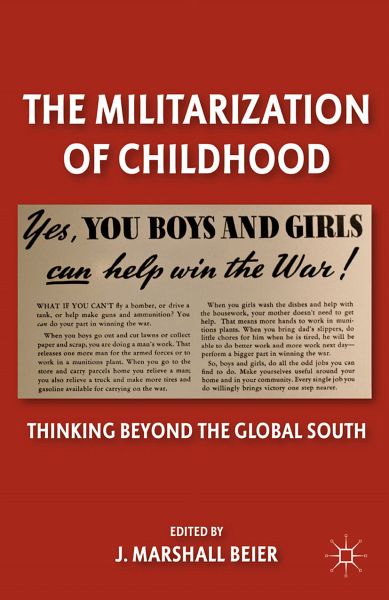
The Militarization of Childhood (eBook, PDF)
Thinking Beyond the Global South
Versandkostenfrei!
Sofort per Download lieferbar
40,95 €
inkl. MwSt.
Weitere Ausgaben:

PAYBACK Punkte
20 °P sammeln!
In its various manifestations, the campaign to end child soldiering has brought graphic images of militarized children to popular consciousness. In the main, this has been a campaign that has seemed to speak to African contexts without as much reflection on the myriad ways in which the lives of children are militarized in advanced (post)industrial societies. Proceeding from this quite striking omission, the contributors to this volume move beyond the usual focus on the global South. Making what will be an important contribution to a much needed critical turn in the vast and still rapidly growi...
In its various manifestations, the campaign to end child soldiering has brought graphic images of militarized children to popular consciousness. In the main, this has been a campaign that has seemed to speak to African contexts without as much reflection on the myriad ways in which the lives of children are militarized in advanced (post)industrial societies. Proceeding from this quite striking omission, the contributors to this volume move beyond the usual focus on the global South. Making what will be an important contribution to a much needed critical turn in the vast and still rapidly growing child soldier literature, they address multifarious ways in which childhood is militarized beyond the global South through enactments of militarism that have drawn much less in the way of critical inquiry.
Dieser Download kann aus rechtlichen Gründen nur mit Rechnungsadresse in A, B, BG, CY, CZ, D, DK, EW, E, FIN, F, GR, HR, H, IRL, I, LT, L, LR, M, NL, PL, P, R, S, SLO, SK ausgeliefert werden.












